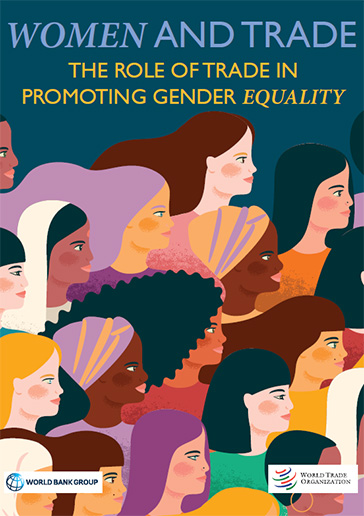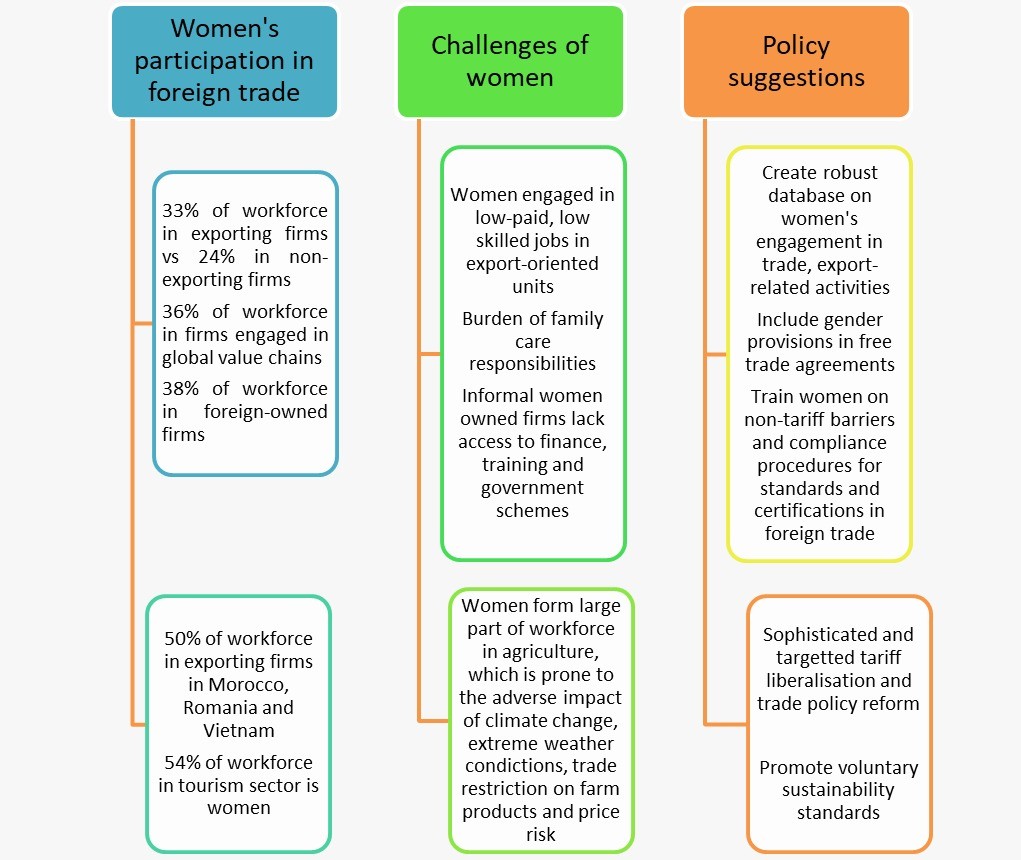The world of international trade is a dynamic and complex landscape, brimming with potential. However, for women, this arena can present a unique set of challenges alongside exciting opportunities. This blog delves into the roadblocks women in international trade often encounter, explores the avenues for advancement, and highlights how businesses can foster a more inclusive environment.
Challenges Faced by Women in International Trade:
- The Glass Ceiling: Women are often underrepresented in leadership positions within the trade sector. This lack of role models can create a perception that international trade is not a viable career path for them.
- Access to Funding: Securing funding for trade-related ventures can be more difficult for women entrepreneurs compared to their male counterparts. This can hinder their ability to start or expand their businesses.

- Entrepreneur And Employees



- Network Disparity: International trade relies heavily on networking and established relationships. Women may find it challenging to break into established male-dominated networks, limiting their access to potential partners and opportunities.
- Work-Life Balance: The demands of international trade, with its frequent travel and irregular hours, can create work-life balance challenges for women, especially those with caregiving responsibilities.

Empowering Women in the Trade Arena: Unveiling Opportunities
Despite the challenges, the outlook for women in international trade is brimming with potential:
- Global Value Chains: The rise of global value chains creates opportunities for women-led businesses to participate in international trade by focusing on specific stages of production or service provision.
- Digitalization: The growth of e-commerce and digital trade platforms levels the playing field, allowing women-led businesses to compete on a global scale without the constraints of traditional trade barriers.
- Focus on Sustainability: The increasing focus on ethical sourcing and sustainable practices aligns well with the values often championed by women entrepreneurs, opening doors for participation in this growing market segment.
- Government Initiatives: Many governments are implementing programs and initiatives aimed at empowering women in trade. These initiatives can provide valuable resources, training, and mentorship opportunities.
Building a More Inclusive Trade Landscape:
Here’s how businesses and organizations can contribute to a more inclusive trade environment for women:
- Mentorship Programs: Mentorship programs connecting established female leaders with aspiring female traders can provide invaluable guidance and support.
- Networking Events: Organize and promote networking events specifically aimed at women in international trade, fostering connections and collaboration.
- Flexible Work Arrangements: Offer flexible work arrangements to accommodate the needs of working mothers and caregivers, enabling women to thrive in the trade sector.
- Unconscious Bias Training: Implement unconscious bias training to ensure all employees are evaluated based on merit and qualifications, not gender.
- Funding Opportunities: Financial institutions and government agencies can create targeted funding programs or investment opportunities specifically for women-led businesses engaged in international trade.

Leadership Mastery Course – How To Challenge Yourself And Others To Greatness-81P
Conclusion: A Future Powered by Parity
Women bring a unique perspective, dynamism, and focus on ethical practices to the realm of international trade. By recognizing the challenges they face and actively promoting inclusion, businesses and organizations can unlock the full potential of women in the global trade ecosystem. As we strive towards a more equitable and diverse trade landscape, the future promises to be powered by innovation, collaboration, and the collective strength of both women and men driving prosperity on a global scale. Let’s break down the barriers and build a future where women are not just participants, but leaders shaping the course of international trade.

